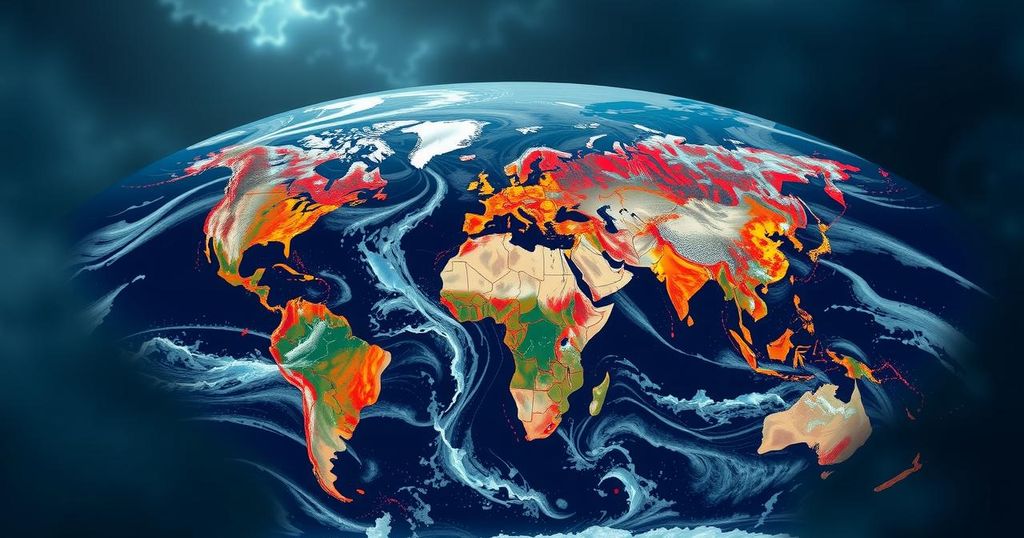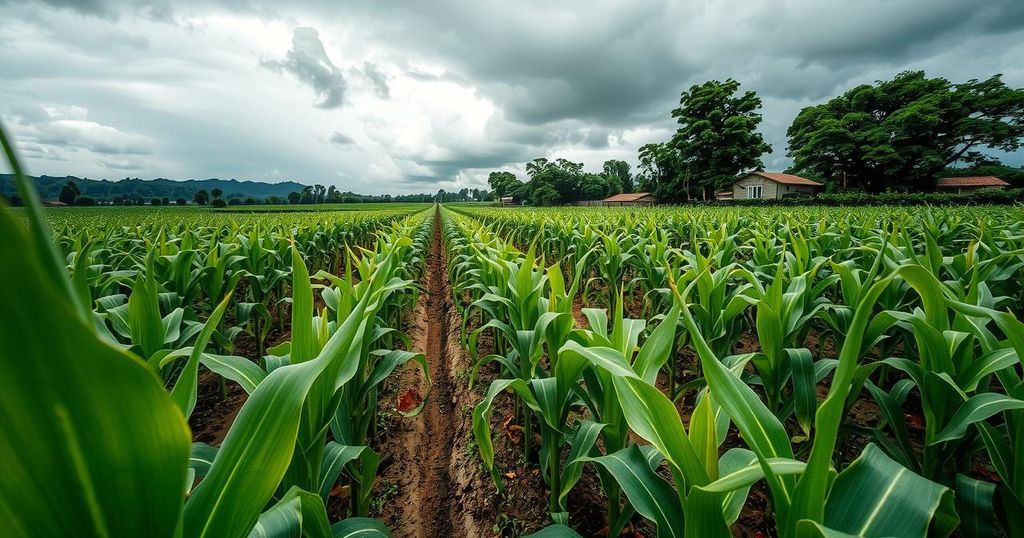Impact of Climate Change on Extreme Weather: Insights from Recent Studies
A recent analysis by Carbon Brief reveals that human-caused climate change has intensified approximately 74% of extreme weather events globally, comprising nearly 750 documented cases. This includes notable trends such as increased heat extremes and a concerning imbalance in research focus between regions. New methodologies, including rapid attribution studies, are enhancing our understanding of climate impacts and driving urgent calls for action.
In 2004, researchers established a groundbreaking study that quantified human-induced climate change’s impact on specific extreme weather events, notably the severe heatwave in Europe during the summer of 2003, which resulted in over 70,000 fatalities. This investigation launched the field of “extreme event attribution,” which assesses how climate change influences the occurrence and intensity of various extreme weather phenomena, including wildfires, droughts, and floods. Carbon Brief has now compiled an extensive interactive map consolidating over 600 studies related to climate change’s effects on extreme weather, covering nearly 750 events. Notably, the findings reveal that 74% of these events have been exacerbated by climate change, with more than a third linked to heat extremes, making them more prevalent or severe. Conversely, approximately 9% of events have been found to be less likely or severe due to climate change, predominantly involving cold weather phenomena. Among the mapped studies are significant cases such as the intense Australian bushfires of 2019-20 and marine heatwaves, both of which have been considerably worsened by climate change. Furthermore, the map illustrates a global imbalance in research, with most studies focusing on the global North, while fewer studies are dedicated to regions such as central and southern Asia and Oceania. The findings stem from various attribution studies conducted using advanced climate modeling and simulation methodologies, marking a rapid evolution in the field over the last two decades. Recent developments include the establishment of the World Weather Attribution initiative, which provides rapid assessments of extreme weather events’ connections to climate change shortly after their occurrence. Additionally, a newer focus on impact attribution has emerged, quantifying the socio-economic and ecological consequences attributable to climate variations caused by human activity. In conclusion, the expanding evidence from these studies underscores the profound and alarming impacts of climate change on extreme weather patterns globally, necessitating urgent action to address these climate-related challenges effectively.
This article discusses the significant influence of human-caused climate change on extreme weather across the globe. It highlights the establishment of the field of “extreme event attribution” aimed at quantifying the impact of climate change on specific extreme weather events. Through the creation of an interactive map by Carbon Brief, researchers can analyze and visualize the connection between climate change and a vast number of extreme weather incidents dating back to 2004. The article also addresses shifts in research methodologies over time and underscores regional disparities in studied extremes.
The article emphasizes that a considerable percentage of extreme weather events have been directly linked to climate change, with research pinpointing that about 74% were made more severe or likely due to human influence. With most studies concentrated in the global North, addressing the knowledge gap concerning extreme weather in less-studied regions remains critical. The advancements in attribution science reflect the urgency of understanding climate change’s implications and inform global responses to environmental challenges.
Original Source: www.carbonbrief.org




Post Comment